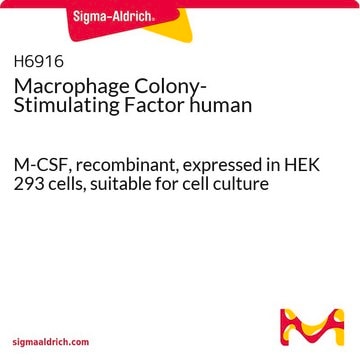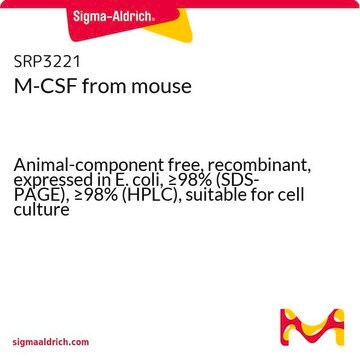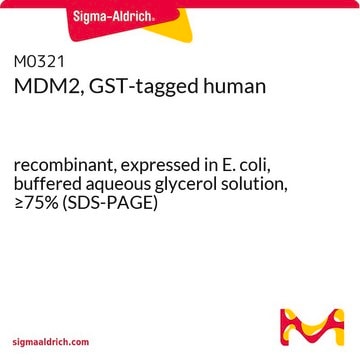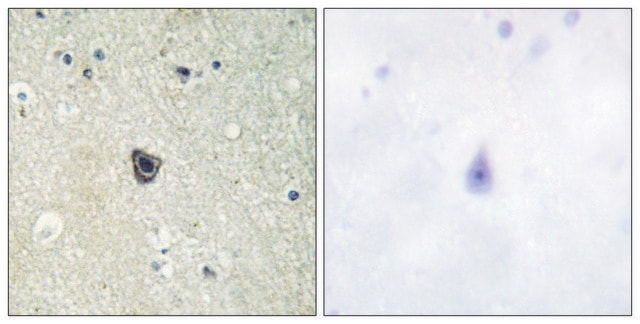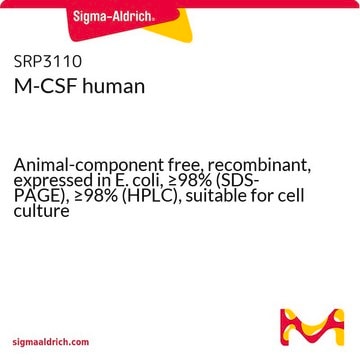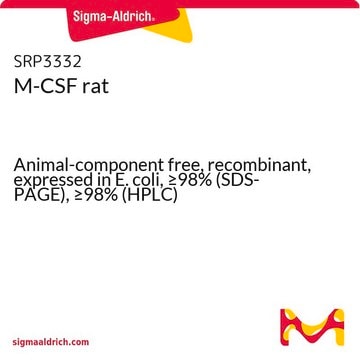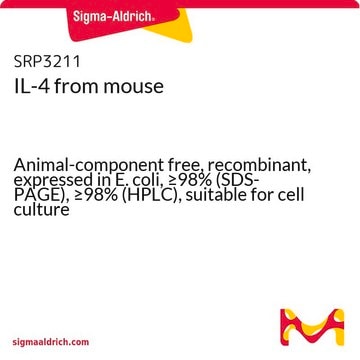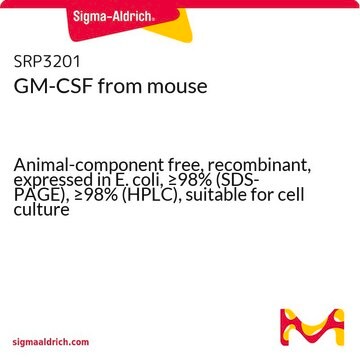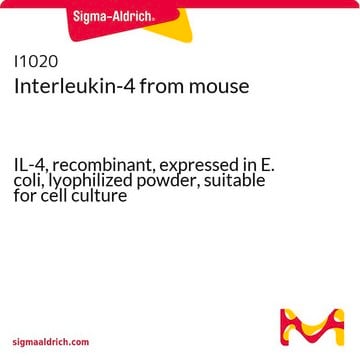M9170
Macrophage Colony-Stimulating Factor from mouse
≥98% (SDS-PAGE), recombinant, expressed in E. coli, lyophilized powder, suitable for cell culture
Sinónimos:
CSF-1
About This Item
Productos recomendados
Nombre del producto
Macrophage Colony-Stimulating Factor from mouse, M-CSF, recombinant, expressed in E. coli, lyophilized powder, suitable for cell culture
biological source
mouse
Quality Level
recombinant
expressed in E. coli
assay
≥98% (SDS-PAGE)
form
lyophilized powder
potency
0.500-3.000 ng/mL ED50
quality
endotoxin tested
mol wt
dimer 18.2 kDa (containing 156 amino acid residues)
packaging
pkg of 10 μg
technique(s)
cell culture | mammalian: suitable
impurities
≤1.000 EU/μg
color
white
UniProt accession no.
storage temp.
−20°C
Gene Information
mouse ... Csf1(12977)
¿Está buscando productos similares? Visita Guía de comparación de productos
Application
- in the initiation of osteoclastogenesis in bone marrow monocyte cells
- to stimulate osteoclast differentiation in non-adherent hematopoietic cell
- for the generation of blood-derived stem cells
Biochem/physiol Actions
Physical form
Analysis Note
signalword
Warning
hcodes
Hazard Classifications
Eye Irrit. 2 - Skin Irrit. 2 - STOT SE 3
Storage Class
11 - Combustible Solids
wgk_germany
WGK 2
flash_point_f
Not applicable
flash_point_c
Not applicable
ppe
dust mask type N95 (US), Eyeshields, Gloves
Elija entre una de las versiones más recientes:
Certificados de análisis (COA)
¿No ve la versión correcta?
Si necesita una versión concreta, puede buscar un certificado específico por el número de lote.
¿Ya tiene este producto?
Encuentre la documentación para los productos que ha comprado recientemente en la Biblioteca de documentos.
Los clientes también vieron
Nuestro equipo de científicos tiene experiencia en todas las áreas de investigación: Ciencias de la vida, Ciencia de los materiales, Síntesis química, Cromatografía, Analítica y muchas otras.
Póngase en contacto con el Servicio técnico